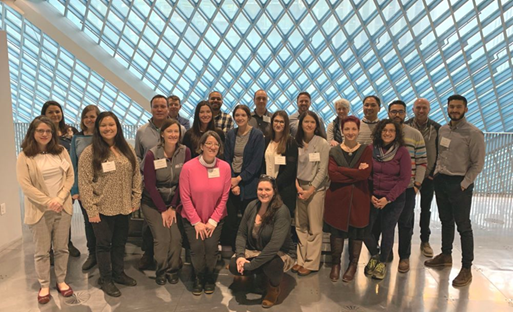Primary Care and Public Health Professionals in the Northwest Building Stronger Partnerships to Combat COVID-19
- By: National Network of Public Health Institutes
- Date
The Coronavirus has highlighted our nations deeply embedded, systemic inequities and underscored the need to develop authentic solutions driven by cross-sector engagement. While no crystal ball could have predicted this current pandemic and its evolving ramifications, practitioners have long known the impact of social determinants on health outcomes.
The Northwest Center for Public Health Practice (NWCPHP) and the Northwest Regional Primary Care Association (NWRPCA) began exploring long-term solutions to these problems as early as 2014 when they pilot-tested a collaboration that is now called the Northwest Public Health–Primary Care Leadership Institute. Officially launched in January 2020, the Institute engages 23 practitioners, from public health and primary care sectors to transform population health improvement approaches through adaptive leadership, upstream collaboration, and systems change.
“Public health and primary care professionals are natural partners when it comes to addressing the unmet social needs and community-wide social determinants of health that impact the health of all,” said Bruce Gray, NWRPCA CEO.
 The first cohort of scholars met in January during a three-day session in Seattle, Washington. Learning faculty introduced them to problem-based learning, an instructional approach that drives active inquiry by using relevant cases simulating real-world problems, to enhance core competencies (e.g. community engagement, data analysis, inter-organizational relationships, leading diverse teams, addressing structural inequities). By early March, scholars submitted project proposals.
The first cohort of scholars met in January during a three-day session in Seattle, Washington. Learning faculty introduced them to problem-based learning, an instructional approach that drives active inquiry by using relevant cases simulating real-world problems, to enhance core competencies (e.g. community engagement, data analysis, inter-organizational relationships, leading diverse teams, addressing structural inequities). By early March, scholars submitted project proposals.
And then, the pandemic struck the United States. The scholars, who are all mid-level practitioners working in a broad range of positions from program managers to care providers, found themselves fully immersed in experiential education in a way no one had imagined. They needed to both learn and apply adaptive leadership in real time. Almost half of the participants revised their leadership projects to specifically address COVIID-19 in their communities. Faculty immediately recognized the value the scholars could bring to the learning environment as subject matter experts themselves. So, they created space for those conversations.
The pandemic exemplifies the importance of primary care and public health working together to address chronic and communicable diseases, prevention, and intervention. “The disparities we are seeing as a result or in relation to COVID-19 need to be addressed as a collective system.” said Dr. Betty Bekemeier, NWCPHP’s Director and an outspoken advocate for health equity. “I’m hoping that this Institute’s cohort of emerging leaders will be the ones who develop a totally different system in their communities 5 to 10 years from now.”
Much like the rest of the nation, this nine-month learning collaborative must forgo their planned face-to-face meetings. Instead the cohort will complete a series of interactive discussions focused on effectively working across sectors towards community- and patient-centered care that protects marginalized populations and increases community resilience. “We can make the greatest impact together by shifting complex, relatively siloed systems towards more coordinated interventions,” Gray said, something the cohort hopes to make progress during their time together.
 Subscribe To Our Communications
Subscribe To Our Communications